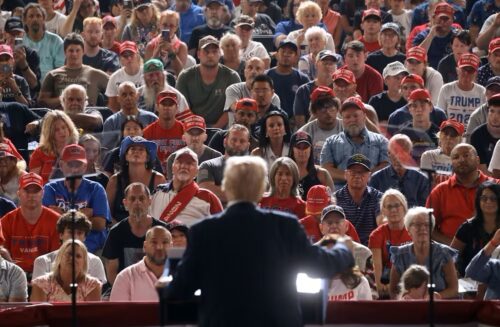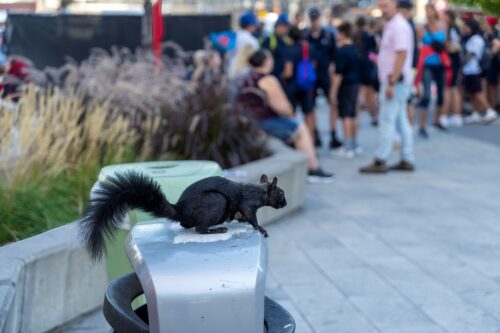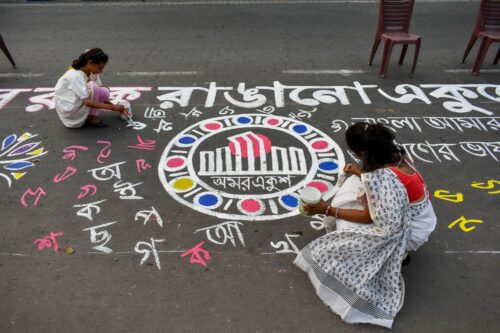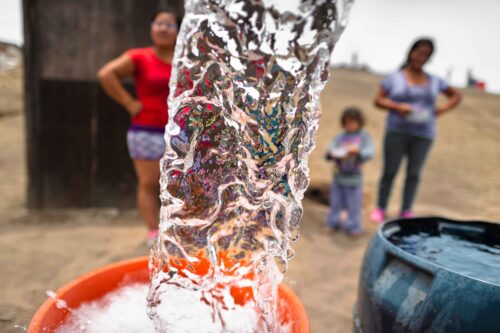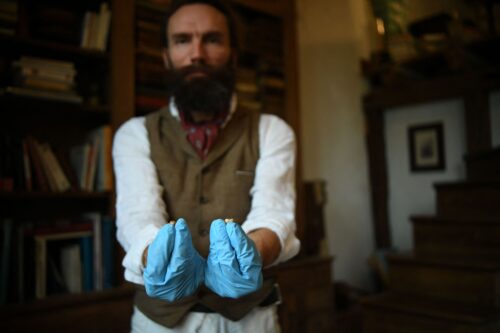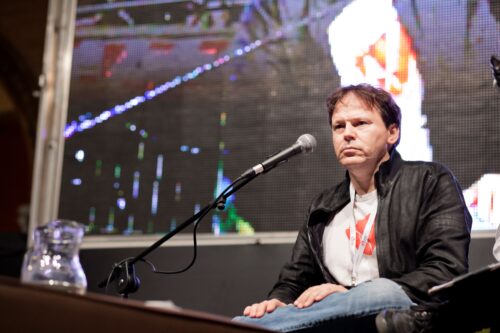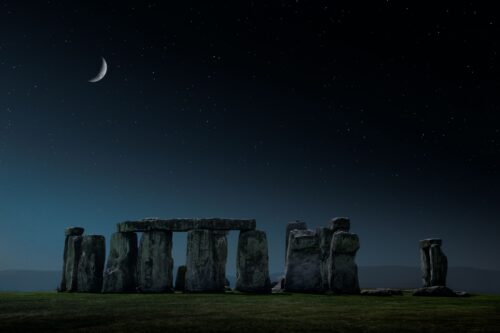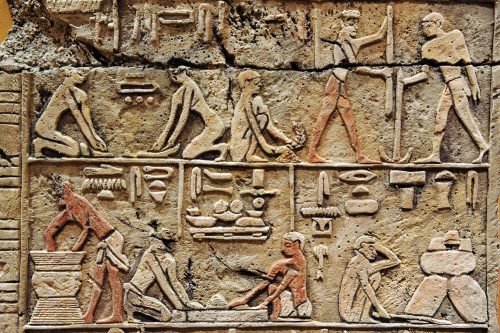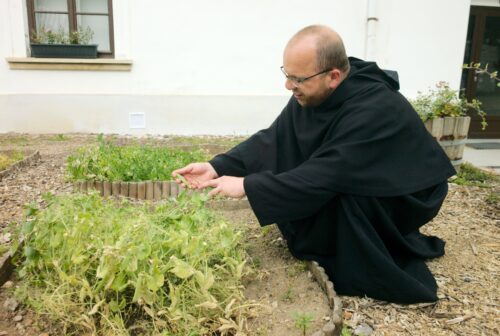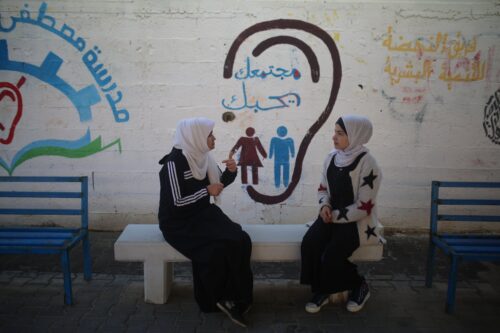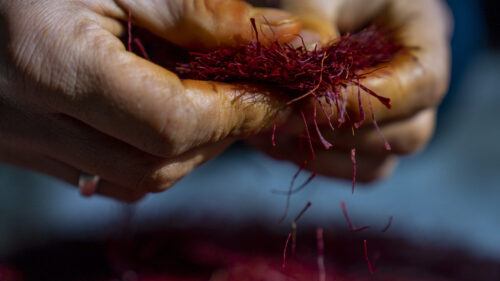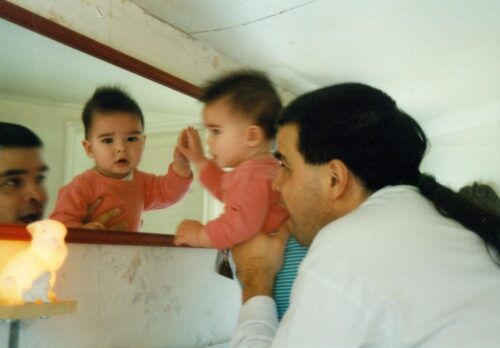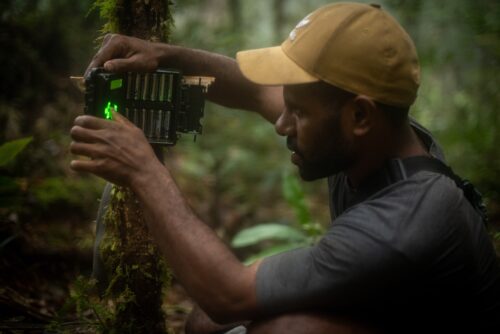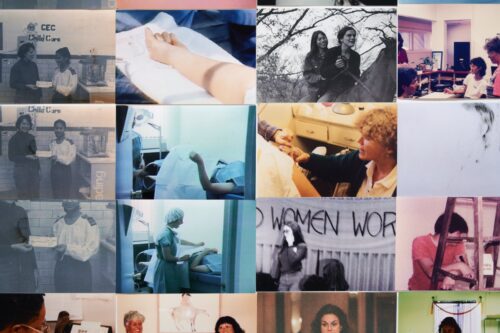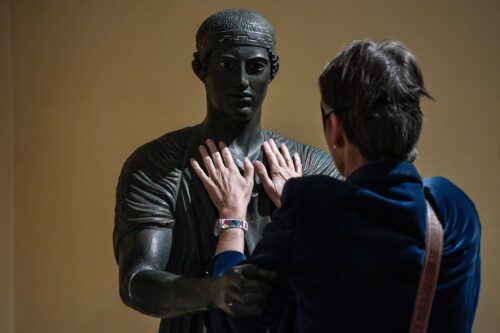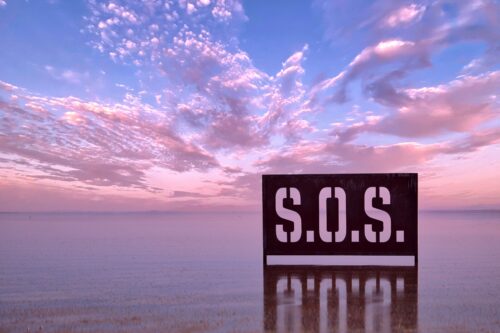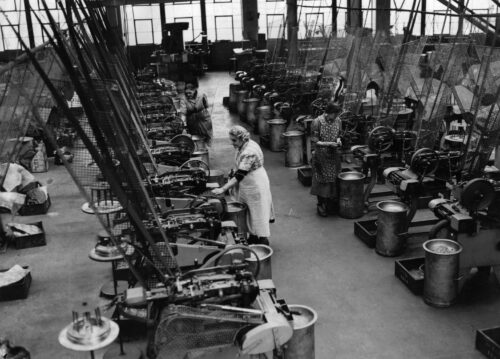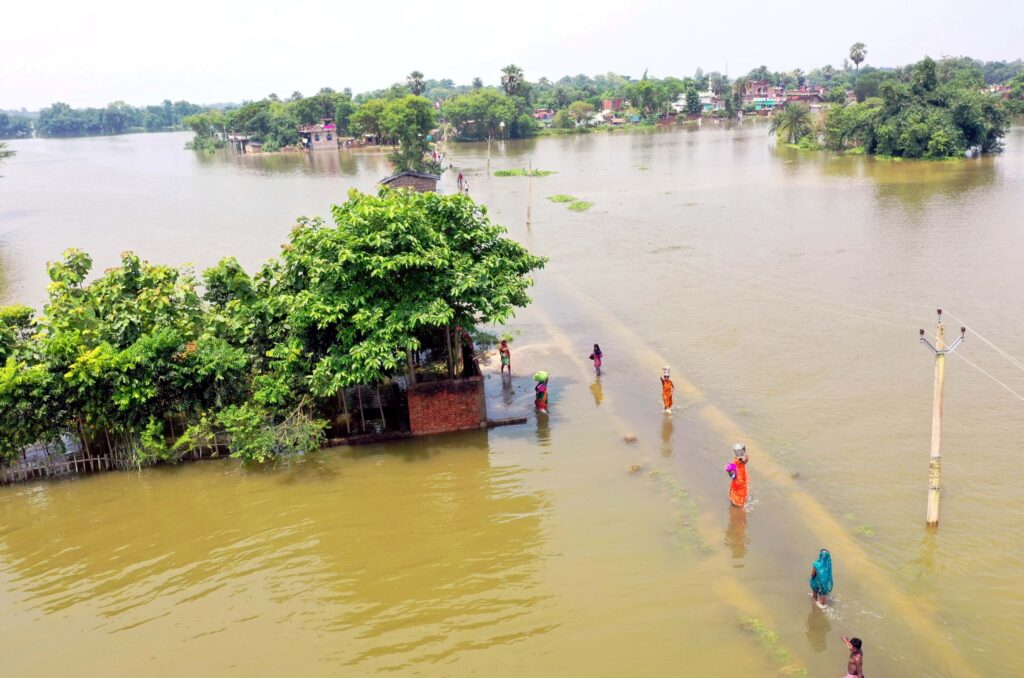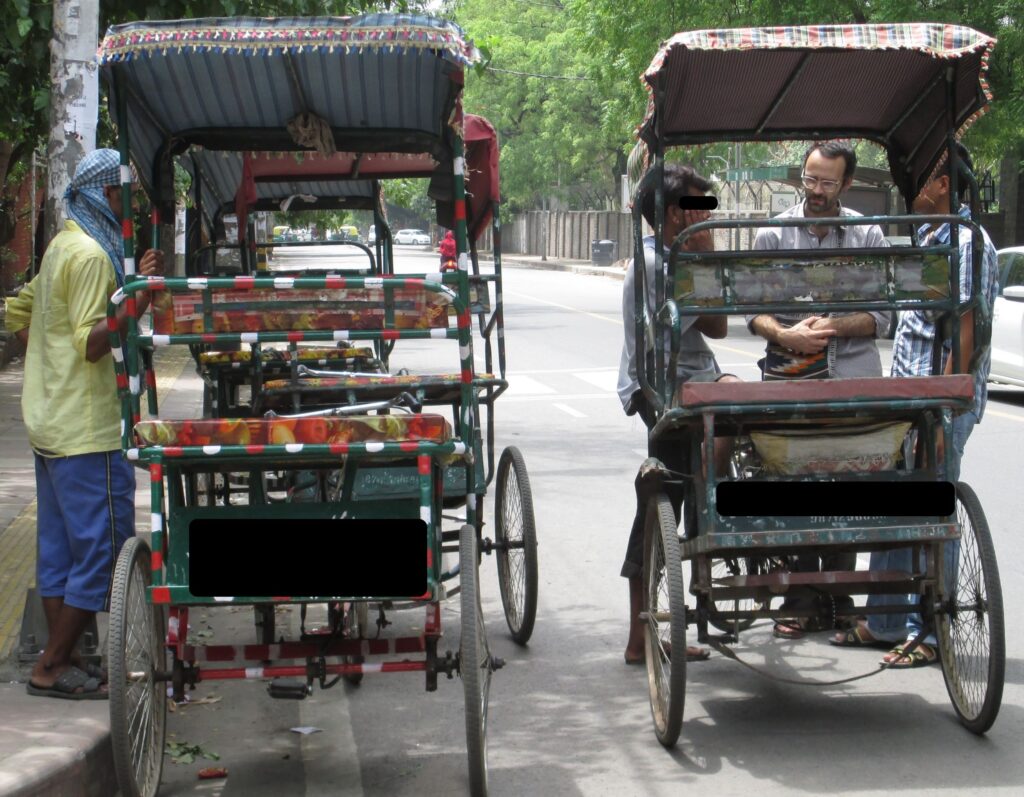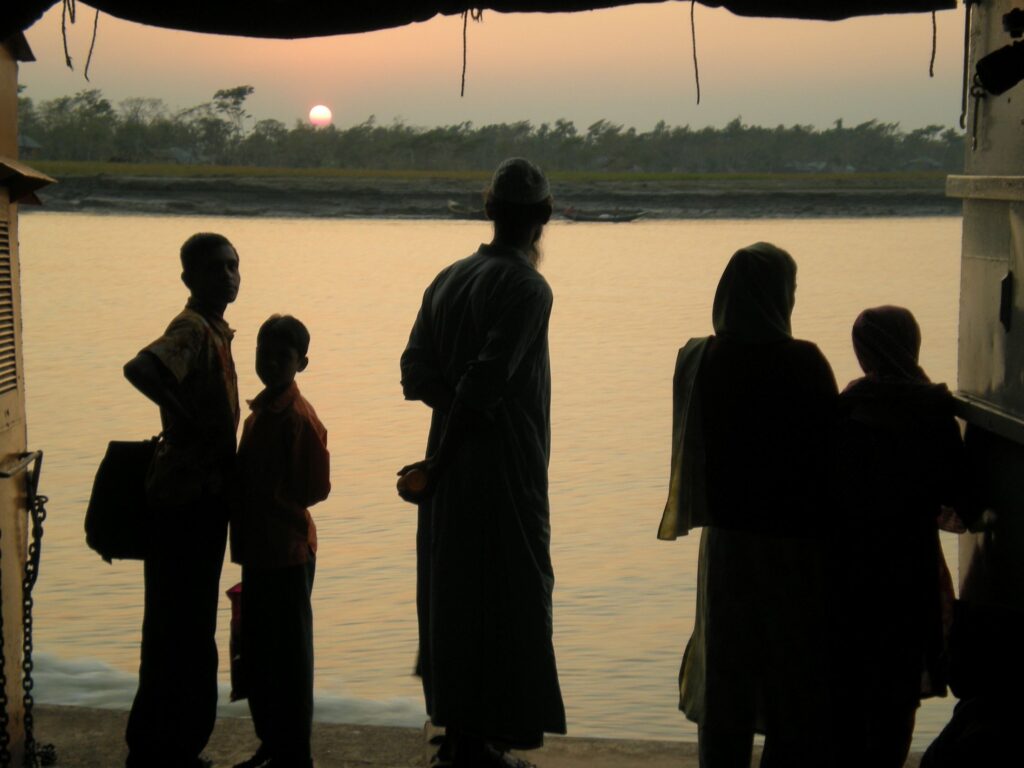Being a “Good Man” in a Time of Climate Catastrophe
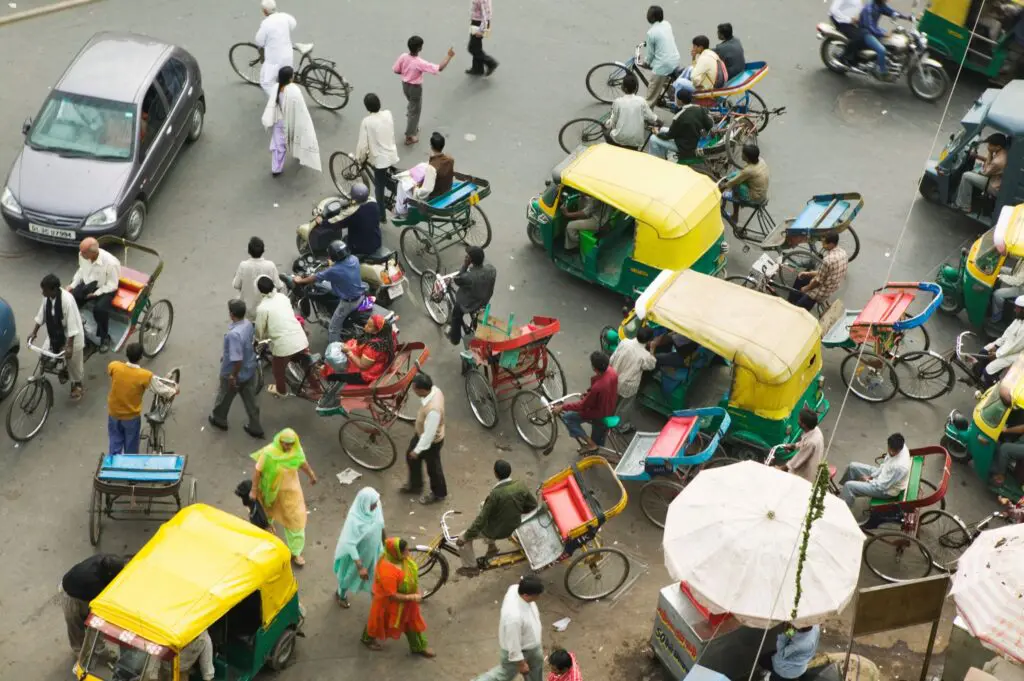
THE RICKSHAW MEN RECEIVE HORRIBLE NEWS
“I’m feeling too much tension to work,” says Aandhit. [1] [1] All names have been changed to protect people’s identities. He turns away potential customers as he sits on his cycle rickshaw—a three-wheeled, pedal-powered taxi—at a busy intersection in South Delhi. A group of rickshaw men gather close, draping their arms on his shoulders while they share a cigarette and mull options.
Last night, Aandhit’s wife had called with urgent news. Flooding had completely submerged their home in the village where all the men in the group are from, more than 1,000 kilometers away in East India. Since January 2017, for about eight months now, I’ve been following Aandhit and his workmates, a mixed group of Muslim and Hindu migrants ranging in age from 21 to 65. As a group, this is the most distressed I’ve seen them.
Aandhit’s wife calls him with an update. She managed to rescue some of their belongings, and now she and their young children, along with their five cows, are camped out on the main road that runs through their village on a raised pitch. Aandhit passes the phone around to his workmates, who all know his wife and are worried about her. Another rickshaw man, Sunil, then borrows Aandhit’s phone to call his own family and check whether the water has reached his home.
The men’s village is in the state of Bihar, where, due in no small part to climate change, floods are becoming more frequent and severe. Over half a million migrant men work in Delhi’s cycle rickshaw industry, making up one subset of countless South Asian migrants struggling to adapt to increasingly volatile environments.
Climate change has evoked different responses based on gender from these diverse communities across the subcontinent, but details of specifically masculine responses are often overlooked. As an anthropologist who studies gender, I had already noticed that rickshaw men considered working to earn money for their families a masculine duty. Now I became curious how they, as men, would handle news of a disaster such as this flood.
In other words, what in this case would a masculinity-based attempt to cope with the fallout from climate change look like?
This question has special significance on the eve of 2024’s national elections in which the Bharatiya Janata Party is poised to retain control of India’s government. The party espouses Hindu nationalism and Hindu supremacy, collectively known as Hindutva ideology. It holds that Hindu men are the historical victims of emasculation at the hands of Muslim conquerors. Hindutva masculinity finds its raison d’être by standing in militant opposition to certain groups it views as threatening, especially Muslims.
Hindutva masculinity and its logic of religious chauvinism have surged in popularity. But what did they mean to Aandhit and Sunil?
SUPPORT BETWEEN VILLAGE-MATES
Precariousness haunts impoverished labor migrants in Delhi even when they aren’t coping with climate-related disasters. Once an automobile rammed Aandhit’s rickshaw, breaking his hand. The men I knew were routinely harassed by police, and the unauthorized colony where they rented rooms was subject to utility cuts and demolitions at the whim of the government. On top of this, they needed to respond to everyday calamities that unfolded in their village, such as illnesses, accidents, and marital problems.
Despite their precarious situations, the rickshaw men didn’t build supportive relationships with people they met in the city. Rather, they remained, generally speaking, distrustful and detached from anyone they didn’t know prior to coming to Delhi. This partly stemmed from the fact that they practiced circular migration—staying in Delhi for a few months, then returning for at least a month to their village before coming back to Delhi. They always saw their migrant status as temporary and remained focused on returning to their families and ultimately retiring in their village.
But their insularity in Delhi was also formed against the stigma, discrimination, and neglect that labor-class migrants experience from wealthier residents and state officials. Because of this, Aandhit and Sunil didn’t count on anyone but their workmates.
Each rickshaw man was enmeshed in a network of relationships that constituted their day-to-day work gangs, which changed as new men from their village arrived and others returned home. Their shared regional/ethnic identity was the most superficial basis for their solidarity. Indeed, they didn’t form close bonds with just anyone from Bihar. Instead, they preferred to be surrounded by men with whom they had long-standing friendships, well-established trust, shared kinship, and/or mutual interests in their villages. Aandhit and Sunil attended the same school, market, weddings, and funerals. They knew each other’s families and grew up playing together in the same fields. Aandhit glossed this as having a “personal relationship.”
These bonds of home even crossed religious boundaries that might have otherwise separated the men. Aandhit’s work gang in Delhi was composed of roughly half Hindus and half Muslims from the village, who all recognized an elevated level of obligation to one another in Delhi. He told me, “Whether they’re Hindu, Muslim, no matter. Here they are all equal.” This didn’t mean that tensions and exclusions that existed in the village completely disappeared when the men left it. Yet when they were away from their families and broader village networks, the men realized the benefits of practicing cross-communal mutual aid—similar to patterns of solidarity among other poor Indian migrant communities in Delhi.
“In the village, we each live with our own castes. But in Delhi, we live with other castes, even Muslims,” Sunil explained. “And we all call each other brother.” This brotherhood often constituted their only significant social life in Delhi, and it involved sharing rented rooms, hanging out together for company and protection, and sharing food, water, phones, and other items. The men in this brotherhood simply referred to one another as “my village-mates” (mera gaowale in Hindi).
HOW “GOOD MEN” WEATHER THE STORM
Over time, I asked many rickshaw men about the meaning of their relationships with their village-mates in Delhi, and they were unequivocal that these relationships were about being “good men” (acche aadmi in Hindi).
It turned out that this masculine mode of support was also their go-to method for coping when they learned of floods in their home village. Floods in Bihar usually occur between June and September when monsoon rains and runoff from melting ice in the Himalaya mountains cause rivers in the central Gangetic Basin to overflow. As these floods intensify, the support that vulnerable migrants provide to one another has become all the more important.
I stood with Aandhit on that morning he became too worried to continue working. His village-mates gloomily offered that this seemed like the worst flooding in memory. Aandhit’s brother, Akyaar, tried to lighten the mood with some self-deprecating jokes about how fat and forgetful he was becoming. One of the men comforted his workmate by massaging his calves and shoulders as we all listened to another co-worker recount how he had managed when floods threatened his house several years ago. Aandhit, who’s Muslim, shared a cigarette with Sunil, who’s Hindu, who then passed it to a couple of his other workmates. One of them then treated us all to a cup of tea.
Their behavior showed disregard for Hindu caste rules, within which saliva is viewed as a spiritually polluting substance, and eating and drinking with members of a lower-ranked community are often prohibited. Amid the abundant cross-communal sharing, touching, and camaraderie, the exclusions that characterize Hindutva masculinity were conspicuously absent.
An unknown rickshaw man slowly pedaled by and looked with curiosity at the men huddled around their parked rickshaws. He called, “What’s up?” No one answered for a few seconds, then Aandhit responded dryly, “These are my village-mates.” No further attention was paid to the outsider. He pedaled away.
Aandhit and several of his workmates decided to travel back to the village to help their families. They again turned to their village-mates to coordinate this emergency trip. They gleaned from their contacts that rising waters had obstructed rail lines in Bihar, so the usual trains were not getting through. Aandhit asked a couple of men to go to a nearby railway station to check delays and schedules. They found an alternate train leaving in a few hours, only to hear from another village-mate that those tracks would also likely be flooded soon.
More calls were made, and another inquiry was put in at the train station. In the end, Aandhit and a few of his friends purchased tickets for a different train that would leave the next day. They were optimistic that it wouldn’t be delayed. In the meantime, they discussed what would be useful to carry back to the village. Aandhit volunteered to go to the market and use money they all had contributed to buy rice and some watertight containers for it. He also accepted a handful of banknotes from Sunil, which he promised to carry to the village and give to Sunil’s wife.
Later he would remind me that doing things like this for one’s village-mates is part of being a good man.
THE PROMISE OF MUTUAL AID
The practice of mutual aid between village-mates in the name of being good men, and for the purpose of counteracting the precariousness these men face in fulfilling their roles as male breadwinners, is a profoundly gendered way of relating to and caring for one another. It also offers a model of solidarity across religious differences that appears radical in the face of Hindu nationalism.
Support and care between men of different religious backgrounds can feel like an unrealistic fantasy given the seemingly endless reports of fighting between communities and attacks on minorities in contemporary India. My fieldwork did not uncover strong evidence for class solidarity or even industry-wide solidarity among rickshaw men. It did, however, reveal that men like Aandhit and Sunil practice a notion of being “good men,” which stands in contrast to any religiously bigoted model of manly nationalism.
The morning of the flood every man who originated from the same village—regardless of their communal affiliations—felt obligated to give emotional or material support to his fellow villagers. Their story offers hope even as climate change forebodes a turbulent and dangerous path ahead. The hope is that trying to be good men means cooperating with men of different faiths and that doing so will help weather the storms to come.
